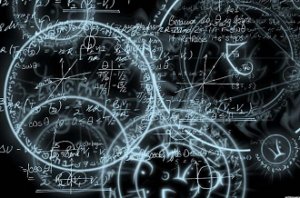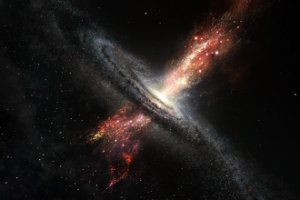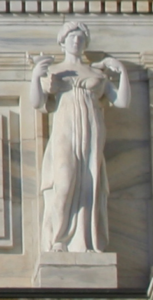
Arquivo para a ‘’ Categoria
From information to narration
The title is purposefully the opposite of the first chapter of Byung Chul Han’s book on the crisis of narration, although he quotes Walter Benjamin who cites the experience of narration in a period before the internet, but the Korean-German philosopher does not clearly see this previous crisis the internet, and thus he himself falls into what he condemns, the absence of analysis in time.
chapter of Byung Chul Han’s book on the crisis of narration, although he quotes Walter Benjamin who cites the experience of narration in a period before the internet, but the Korean-German philosopher does not clearly see this previous crisis the internet, and thus he himself falls into what he condemns, the absence of analysis in time.
If it is true that the Internet and its tool for making information available to laypeople, which is the Web (born in the 90s, more than 20 years after the internet) not only created a profusion of means of disseminating information and its narratives, but also created the possibility of its profusion in audio and video, which gives rise to a new possibility of recorded narration for podcasts and videos.
Of course, this does not mean that that primitive narrative prior to writing and the press, typical of primary orality, has returned, it exists in original cultures and also in some Western cultures and beliefs, for example, among the Kurds there are the “çîrokbê” who, if it were Literally translated, it would be what we understand in Western culture as “history”.
Byung Chul Han’s sentence about the digital universe is clear: “Digitalization deobjectifies and disembodies the world. It also eliminates memories” (Han, 2022) this is partly true, but digital media itself, once recorded, becomes a thing, and once a narration is made, just for example, by Kurdish narrators, the information (in the sense of Chul Han) returns to narration, that is, the reverse process is possible.
Its error, from a philosophical point of view, is an old question about what things are (or what they are), the relationship between subject and object is the result of Western dualism since Parmenides, and only a non-dual vision can understand that the A thing is also not a thing in itself, once narrated.
Thus, information will always be paradoxical, it is narrated when it is and not narrated after it has become narrated-information and is subject to historical distance, but if seen from the point of view of quantum physics it is even more complex, because there are both things, from which the question arises from some physicists that time does not exist, difficult for today’s culture.
This question of time arose in 2012 in a TedTalk by the Italian Carlo Roveli: “Time Doesn’t Exist and I’ll Tell You That in 15 Minutes”, but has gained popularity now because the James Webb mega-telescope proposes several new paradigms when looking deeper into the universe, We are at the end of the Copernican era, the center of our galaxy is a black hole and they have already started to say what they are, dark matter and dark energy are also beginning to be revealed.
The theoretical physicist Michio Kaku gives the history of this idea, “In The God Equation” (ed. Record, 224 pp, trans.: Alexandre Cherman), and there he gives a written account of today’s physics.
Han, Byung-Chul (2022). Não-coisas : reviravoltas do mundo da vida / Byung-Chul Han ; tradução de Rafael Rodrigues Garcia. – Petrópolis, RJ : Vozes, Brazil.
Happy 2024 and blog line
It is difficult to make a positive assessment of 2023, we expected some positive reaction from humanity in the post-pandemic where many died as a result of the worsening of collateral diseases caused by the coronavirus, we expected more solidarity and respect for human life.
we expected some positive reaction from humanity in the post-pandemic where many died as a result of the worsening of collateral diseases caused by the coronavirus, we expected more solidarity and respect for human life.
Ukraine will start the year with a day of mourning due to the massive attack carried out by Russia that killed 39 people and injured 159 others, most of them civilians, the UN declared the attack “unacceptable” and the United States admits direct intervention in war through its troops, this would in practice represent the beginning of a 3rd. World War.
In addition to this crisis, there is the scourge of war in the Gaza strip and tension between Venezuela and Guyana.
The year is not yet over and this month the blog broke its record number of hits with more than 32 thousand and the new line where we delve deeper into the issue of the noosphere, based on Teilhard Chardin who coined the term, also the crisis of thought (we see that the philosophy is also experiencing a crisis) and which is the origin of the current civilizational crisis and Cyberculture, with ethical and social aspects that are deepened in readings of both the emergence of new technologies (ChatGPT, Bard, Azure, etc.) that enter the Era of Generative AI, in the LLM (Large Language Model) model.
The complex scenario requires reading a few authors who detect the golden thread of the current crisis, the idealistic model that comes from the dualism of Ancient Greece (being is and non-being is not), the centralizing and monopolizing state model (even the liberal model that grows in some countries continues to dictate centralized theories and models) and whose crisis affects the social body, culture and even religion where there is no shortage of false prophets, soothsayers and apocalypticists, this appeal grows depending on the severity of the time.
We leave a breath of hope, of certainty that it is possible to emerge from a crisis with balance, responsibility and a dispassionate look at problems, passion for life yes, but not that of fanatics and saviors of the country who contribute little or nothing to humanitarian and responsible for the human future.
Chardin’s universal vision
For a certain time, Chardin’s vision of a universe formed from a divine intention, its evolution within a geosphere, then a biosphere and finally the current stage that is a noosphere (noon – spirit) was considered heretical, but at the time few were changing, many philosophers and theologians began to study him, his works were being published and acceptance by the church was being considered, to the point of even thinking about his beatification.
formed from a divine intention, its evolution within a geosphere, then a biosphere and finally the current stage that is a noosphere (noon – spirit) was considered heretical, but at the time few were changing, many philosophers and theologians began to study him, his works were being published and acceptance by the church was being considered, to the point of even thinking about his beatification.
One can think in the current controversies, without serious doctrinal meaning in my opinion, that this is due to a certain heretical “modernization” of the church, but the most diverse theological thoughts within the church reflect on the validity of this vision that updates Christian thinking and gives a great opening to what modern man has discovered and continues to discover about human life on earth and the cosmos.
In a homily by Pope Benedict XVI, on July 24, 2009, in a homily in Aosta, Benedict XVI quotes Teilhard de Chardin, as a positive illumination: «The function of the priesthood is to consecrate the world so that it becomes a living host, so that the world becomes liturgy: that liturgy does not pass by the reality of the world, but that the world itself becomes a living host, becomes liturgy. This is the great vision that was later also that of Teilhard de Chardin: in the end, we will have a true cosmic liturgy in which the cosmos becomes a living host.”
And this is not a new doctrine, although Chardin brought it closer to Science, the Second Vatican Council in the Constitution Gaudium et Spes (nº 5), in fact, declares: «In short, the human race passes from a basically static notion of the order of things to a more dynamic and evolutionary conception: this gives rise to a huge new problem that requires new analyzes and new syntheses.”
And in the Catechism of the Catholic Church (n. 310), we read: «God freely wanted to create a world “in a state of progress” towards its ultimate perfection and Jesus will come in his glory, after wars, pestilences and other civilizational difficulties, to save him, says eschatology.
Thus, not only does original sin, the expulsion from paradise and the human future open up to a new perspective consistent with the doctrine, but it also clarifies controversial points historically, we would say due to the Copernican revolution, man and the world are neither geocentric nor heliocentric, at the center of the galaxy is a black hole, so we could say that it is noocentric,
GRONCHI, Priest Maurizio. In the thoughts of Pierre Teilhard de Chardin. « J’étudie la matière et je trouve l’esprit. », L’Osservatore Romano, 29 December 2013.
Smooth the paths
All of reality seems like a huge mess, and in fact it is without a meditative perspective (the vita contemplativa that we posted last week) and without a prophetic vision that goes beyond factual reality, which is almost always dualistic because it only sees through one aspect. guys.
is without a meditative perspective (the vita contemplativa that we posted last week) and without a prophetic vision that goes beyond factual reality, which is almost always dualistic because it only sees through one aspect. guys.
There will be wars, revolutions, people against people, everything that overwhelms false prophets, soothsayers and bad biblical readers, announcers of themselves and not of divine reality.
Yes, the biblical reading is this Mt 24,7-8: “For nation will rise against nation, and kingdom against kingdom, and there will be famines and earthquakes in various places; but all this is the beginning of sorrows” yes, but this “will not be the end” and the reading does not stop there: “many false prophets will arise and deceive many”.
Although we are experiencing a great civilizational crisis, the Bible speaks of the “great tribulation”, all of this is in reality a “straightening of the paths”, as John the Baptist did at the time of the coming of Jesus.
They asked him if he was the Messiah or Elijah (John 1:22-24): “They then asked: ‘Who are you after all?’ We have an answer for those who sent us. What do you say about yourself?’ Then John declared: “I am the voice that cries in the wilderness, ‘Make the way of the Lord plain’” as said the prophet Isaiah”, who prophesied that God would send light and joy through a child , and who would break the “yoke of his burden” (Isaiah 9:4) and would be called “Wonderful, Counselor, Mighty God, Everlasting Father, Prince of Peace” (verse 6).
It is indeed a civilizational crisis, models of society in shock, dangers of wars in limits and proportions never imagined, but all of this is also “smoothing the paths of the Lord”, the coming of a New Civilization, not that of false prophecies, but the kingdom of peace.
Beware of false prophets, with promises of paradise that do not come true, they also feed on crises, cruelty and wars, but do not propose peace and justice, or they don’t build them.
What was happiness for the Greeks
The Greeks defined happiness as Eudaimonia over the various human conditions: for those who are hungry, happiness is food, for those who are cold, warm clothes, for those who are ambitious, money, for those who are vain, honors, for those who are sick, health. , etc.
over the various human conditions: for those who are hungry, happiness is food, for those who are cold, warm clothes, for those who are ambitious, money, for those who are vain, honors, for those who are sick, health. , etc.
This is why, as we previously defined, rational happiness was called “good life”, and if so, how can we maintain that happiness is the good for men, since it must bring with it that they are common to all and the real possibility of life for everyone.
The purpose of life for each man can vary greatly from person to person, there are those who relate happiness to pleasure, pleasure, enjoyment, without any pain, but it is necessary to recognize the finiteness and limitation of these values and understand that life Full requires balance, give the necessary virtues, in Greek the arethé, Aristotle did not refuse pleasures, however he warned that this type of life aims only at the immediate and it is necessary to look at what remains.
Happiness is self-sufficient, that is, it is not desirable because of something else, and it is desirable in itself, so throughout life, we must shift our gaze from the outside to the inside and look within ourselves at those attachments and attachments to things temporary pleasures that are only temporal pleasures.
It was from the analysis of virtues and the practical exercise of ethics, Aristotle concluded that happiness is an activity, which is why it cannot be found potentially in man, it is not considered a virtue, although it does not occur without it, there is this potentiality in U.S.
Prudence and happiness
Breaking the rules or getting out of the box, there are even books encouraging throwing everything away, is different from what the Greeks thought, of course a life that is going wrong needs to be analyzed.
even books encouraging throwing everything away, is different from what the Greeks thought, of course a life that is going wrong needs to be analyzed.
I used the word happiness, because the word used by the Greeks is “Good life”, which in its current connotation means eating, drinking, spending and sleeping, but it was not the conception of Aristotle and other ancient philosophers.
In Nicomachean Ethics, the philosopher demonstrates that to achieve the “good life” we must take into account our instinct, sensitivity and intelligence and, through the conjunction of these three elements, cultivate our best side, because, for example, instinct can be a trait of personality that does not lead to balance, this is where the idea of prudence comes in.
In book governs science, and prudence (phónesis) governs ethics, however the Greeks believed in an absolute science, capable of knowing the deepest structure of Being.
Such a core is eternal, immutable, absolute, and the ethics that is a consequence of this is practical science.
In it, prudence governs temperance, which is what will govern our instincts, it is what determines the good exercise of temperance, the wise person in ethical decisions is the one capable of finding the middle ground (ne quid nimis: nothing in excess), that is one of the practices.
It contains virtue (arethé) and in the soul there are three types of functions: irrational (nutrition, growth, etc.), motivational (generating actions) and rational (linked to our cognitive capacity that makes us capable of achieving true).
Just to give a practical example, whoever controls personal finances could include a description field in inputs and outputs, an explanation of the reason for spending or obtaining the resource.
For Aristotle, virtue is something that occurs in the soul, that is, our interiority, so he divides the virtues into ethical (courage, generosity, friendship, justice, etc.) and dianoetic (wisdom, temperance, intelligence, etc.).
So we can change a saying and now say that “the habit makes the monk”, now not with outer clothing, but with inner clothing, virtues create “virtuous circles” in us.
What is Love after all
Although Hannah Arendt’s work is not definitive regarding love, the advisor Karl Jaspers himself expressed this, developed and appropriated some fundamental categories in his doctoral thesis “Love in Saint Augustine”.
regarding love, the advisor Karl Jaspers himself expressed this, developed and appropriated some fundamental categories in his doctoral thesis “Love in Saint Augustine”.
According to author George McKenna, in a review of her dissertation, Arendt tried to include a revision in her “The Human Condition”, but it is not very clear in the book (of the Arendt), which is excellent.
If we can also express an expression of this love in ancient Greek literature, such as agape love, the one that differs from eros and philia in this literature, from a Christian point of view the best development made is in fact that of Saint Augustine.
First because he separated this concept from good x evil Manichaeism, a dualism still present in almost all Western philosophy due to idealism and puritanism, then because he was in fact raptured upon discovering divine love, he wrote: “Late I loved you, O beauty so ancient and so young! Too late I loved you! Behold, you lived within me and I was looking for you outside!” (Confessions of Saint Augustine).
Then man must love his neighbor as God’s creation: […] man loves the world as God’s creation; in the world the creature loves the world just as God loves it. This is the realization of a self-denial in which everyone, including yourself, simultaneously reclaims your God-given importance. This achievement is love for others (ARENDT, 1996, p. 93).
Man can love his neighbor as a creation by returning to his origin: “It is only where I can be certain of my own being that I can love my neighbor in his true being, which is in his createdness.” (ARENDT, 1996, p. 95)
In this type of love, man loves the divine essence that exists in himself, in others, in the world, man “loves God in them” (ARENDT, 1996, 95).
The biblical reading also summarizes the law and the Christian prophets as follows (Mt 22, 38-40): “This is the greatest and the first commandment. The second is similar to this: ‘You shall love your neighbor as yourself’. All the Law and the prophets depend on these two commandments.”
Love contains all the virtues: it does not become conceited, it knows how to see where the true signs of happiness, balance and hope are found.
ARENDT, Hannah. (1996) Love and Saint Augustine. Chicago: University of Chicago Press.
The structures of evil
If evil is the absence of good, it is also possible that in our individual actions, through carelessness, intention or even malice, wanting to do good we do evil, as Ricoeur explained in symbolic evil.
that in our individual actions, through carelessness, intention or even malice, wanting to do good we do evil, as Ricoeur explained in symbolic evil.
After evil is socially structured, it seems to give meaning to what in full awareness we know is not moral or socially correct, it is not about political correctness here, but that structure of meaning that is given through symbolic language, a crude example, but what is the point here, the different types of prejudice that enter society.
It can be didactically divided into three topics, the first being within human experience, the second within various discourses where evil has a philosophical importance of aporia, this is part of philosophical thinking, and the third as a determination of the language that asks whether evil exists in itself or is a reality of naming things and actions around existence.
It is therefore possible to discuss it outside the Manichaean sense, they are not opposing poles, but rather symbolic structures that penetrate our daily lives as experience, as aporia (difficulty or rational doubt about their objective existence) or symbolic element of language.
The symbolism of evil was deeply developed in Paul Ricoeur’s book, it is linked to human transcendence that somehow determines the denial of the positive values of human existence: defense of life, appreciation of solidarity, protection of the weakest, etc. aporia is one that, due to its clear indefiniteness, falls into the indeterminacy of good.
Aporia not only denies evil, it denies human evolution (social, technological, ecological and moral), it ignores the imaginary, transcendence and moral values beyond the apparent ones, it denies the Other, imagining that in this way I will be affirming its Being, which in truth does not understands it or is not integrated, thus prevailing an idealistic rigidity about what transcendence would be.
Building our inner being, placing it at the service of society in every way, in solidarity with everyone else, is not just a good thing, it is a condition for civilizational evolution (ecological cities, for example, image)
Civilization evolves not only because it builds new structures, technologies and human values, but because at some point in this process it goes through imagination, transcendence and looking at the Other and around.
Civilization, crisis and anger
The civilizing process, which involved wars and wars, was also marked by other major crises, coincidence or not, simple natural fact or divine intervention, the black plague from 1347 to 1353 which killed 50 million people, a high number for the population at the time. , anticipates a moment of crisis at the end of the Middle Ages and the beginning of the Renaissance.
wars, was also marked by other major crises, coincidence or not, simple natural fact or divine intervention, the black plague from 1347 to 1353 which killed 50 million people, a high number for the population at the time. , anticipates a moment of crisis at the end of the Middle Ages and the beginning of the Renaissance.
Today there is no correction that can be called “cynical” given the current connotation of the word, but Sloterdijk’s Critique of Cynical Reason applies well to skeptics: they do not believe in any morality, they do not believe in civility, and they bring anger and social anger leads to contempt.
The political event is the fall of Constantinople, on May 29, 1453, which gave rise to the Ottoman Empire, which later expanded throughout Europe, putting an end to the Byzantine Empire, of course together with a cultural movement that revived classical Greek teaching.
Also at the beginning of the First World War we had the Spanish flu, of course a correlation between epidemics, crises and wars is not so simple and easy to understand, however the fact that periods of civilizational crises led to wars and the birth of new empires is a fact , after all, after the fall of Constantinople, the Turkish-Ottoman Empire was born, which was until the first world war.
The existence of hate, of intolerance is practically inherent to wars, there is no shortage of justifications for a certain type of “justice”, there are several arguments for hate, for peace there is only one: love of life and appreciation for the civilizing process, perhaps it is time to reverse the logic of war: conquest.
We will only enter into a civilizing process worthy of humanity, if we abandon the primitive methods of correcting errors and injustices, almost always subject to narratives, a true process of human development worthy of the name cannot be carried out with the practice of wars and genocides with attempts to euphemisms that soften the cruelty.
The book of Ecclesiasticus says (Eccl 17:33): “Resentment and anger are detestable things, even the sinner seeks to dominate them”, and error must always give way to forgiveness and reconciliation, how many times? The biblical reading says: “seventy times seven” (Mt 18,21).
The developing process points to the outbreak of a war whose consequences are very worrying due to the power of weapons, technologies and global involvement.
There is always a possible opposite attitude, a virtuous circle is always possible, will it come?
Testimonies and humanism
True humanism is what allows the evolution of the civilizing process, preserving what is essential that every man has, which is his Being, this goes beyond the conditions of economic, social and political survival, he must include the Other and give this testimony.
of the civilizing process, preserving what is essential that every man has, which is his Being, this goes beyond the conditions of economic, social and political survival, he must include the Other and give this testimony.
Testimonies range from cases in which someone needs information and turns to someone or some epistemic means (organized knowledge) to new scientific reports that reveal the most intricate mysteries of life and the universe.
Epistemologists agree on the importance of testimony as a source of justification, along with perception (cognitive and beyond), memory (all means of information and dissemination) and reasoning (beyond the logical, physical and metaphysical), The divergence lies in how falsely justified testimonial beliefs can arise from justified beliefs.
This is due to the fact that not only beliefs considered in the religious aspect, but also them, but the fact that it is possible that testimonial beliefs involving perception, memory and cognition (my addition) are reliable from previously justified beliefs, this is the current called reductionist, because regardless of the testimony, it is already justified.
Anti-reductionists argue that the justification of testimonial beliefs is straightforward: we are justified in believing something simply because someone testifies to something even though there are no reasons not to do so, there are different tentative responses to this debate.
Outside of this epistemic debate, we must think that we live in a time when it is difficult to think and organize information in order to reach the testimony as a source of truth, one can defend peace even by making war, one can defend democracy by limiting the civil rights and divergent ideas, justice can be defined by changing the rules of law to give rise to injustice, one can proclaim a belief even while limiting oneself to a partial practice.
Thus, what is at stake is not the testimony of beliefs, but often their own denial, and it can be a matter not just of bad faith or ill will, but of difficulty in cognition, which is why I made this addition to perception and memory, where the problem is the source of information.
A true humanism must presuppose testimony, otherwise we do not have a reliable reference for our arguments, dialogues and overcoming disagreements.
We can only test our way of life if we live up to what we witness.
Referência:
Leonard, Nick, “Epistemological Problems of Testimony”, The Stanford Encyclopedia of Philosophy (Spring 2023 Edition), Edward N. Zalta & Uri Nodelman (eds.), URL = https://plato.stanford.edu/archives/spr2023/entries/testimony-episprob/ , 2021.

